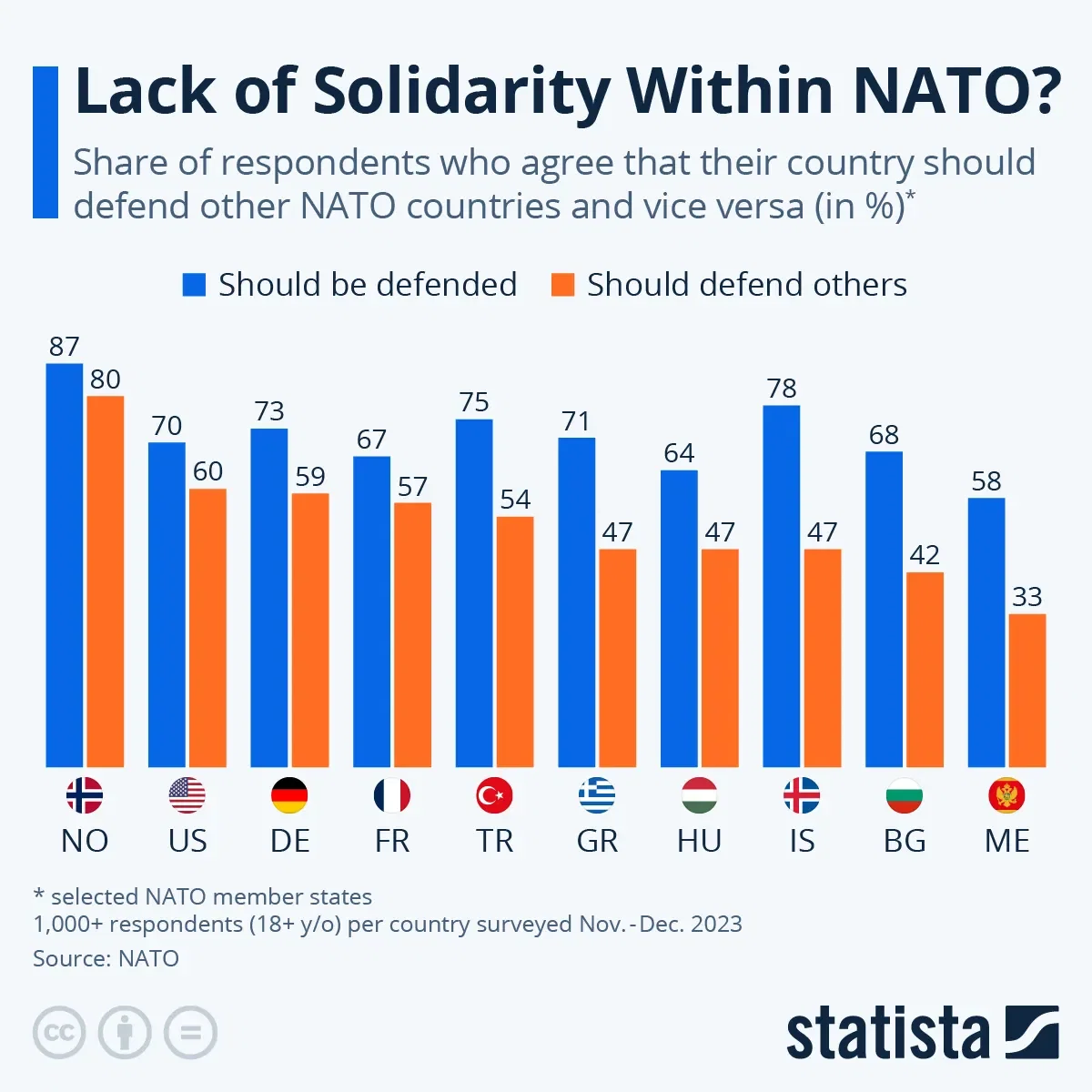Where Data Tells the Story
© Voronoi 2026. All rights reserved.

Russia’s invasion of Ukraine is making several countries in Europe reassess their military defenses. Several members of the North Atlantic Treaty Organization (NATO) have even said that they will be increasing their numbers of conscripted soldiers, the latest of which were Denmark (announced 13 March, 2024) and Norway (announced Tuesday). But what are the sentiments of people living in NATO states on the topic?
Data from a NATO survey shows that while support is high when it comes to the question of relying on allies to come to their country’s aid, respondents were less sure of helping others to defend themselves. For example, where 70 percent of respondents in the United States were of the opinion that the country should be defended by its allies in the event of an attack, 60 percent said that they thought that the country should answer the call of their allies.
As the following chart shows, out of the member states selected for this chart, a lack of solidarity is particularly evident in southeastern Europe. In Greece, Hungary, Bulgaria and Montenegro, less than half of those surveyed agree that their home country should defend others, while 58 to 71 percent of survey participants want to be protected. Iceland has the biggest gap between the two questions: 78 percent think NATO should defend the island state, while only 47 percent support their backing of others. In the survey, Norwegians showed the strongest leaning towards solidarity.
See the data tab for a full list of countries.